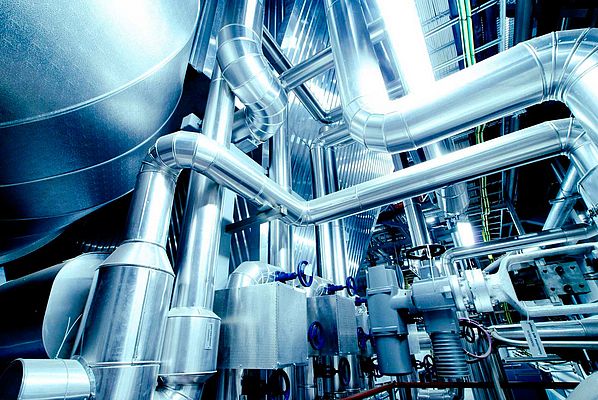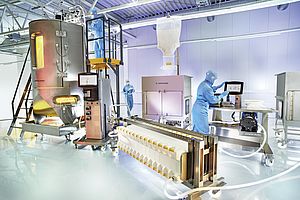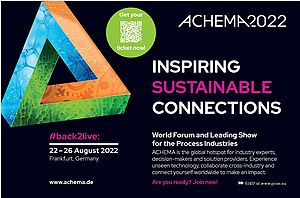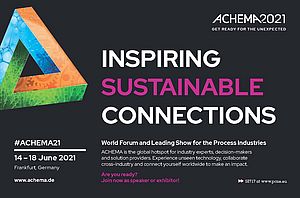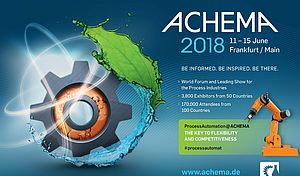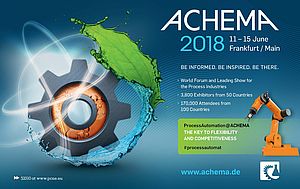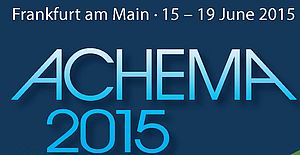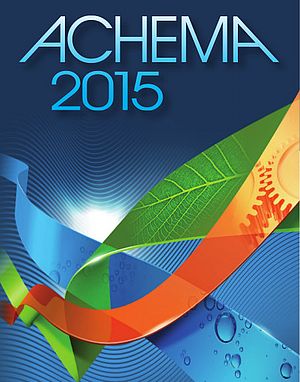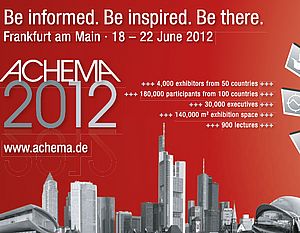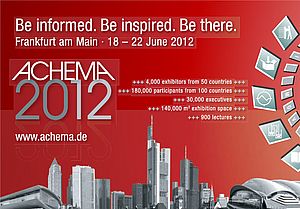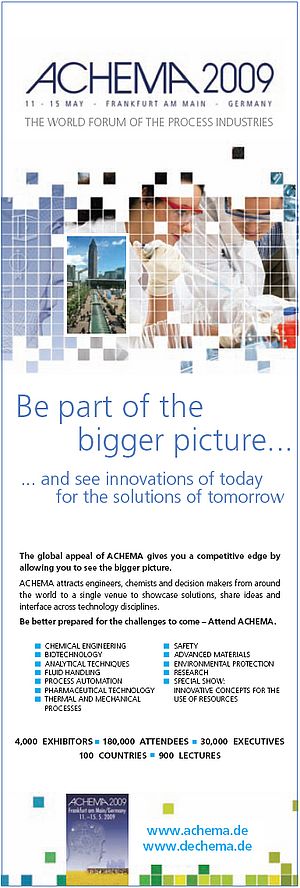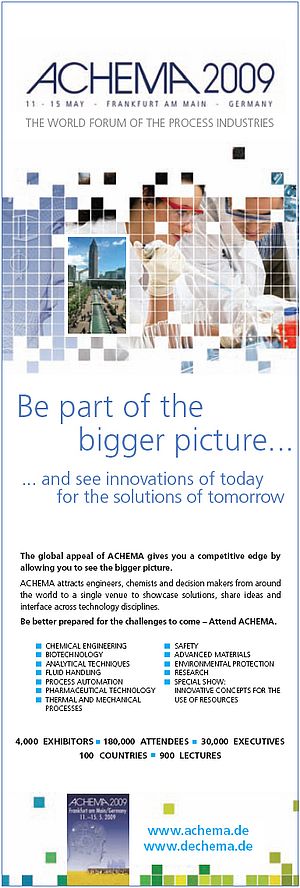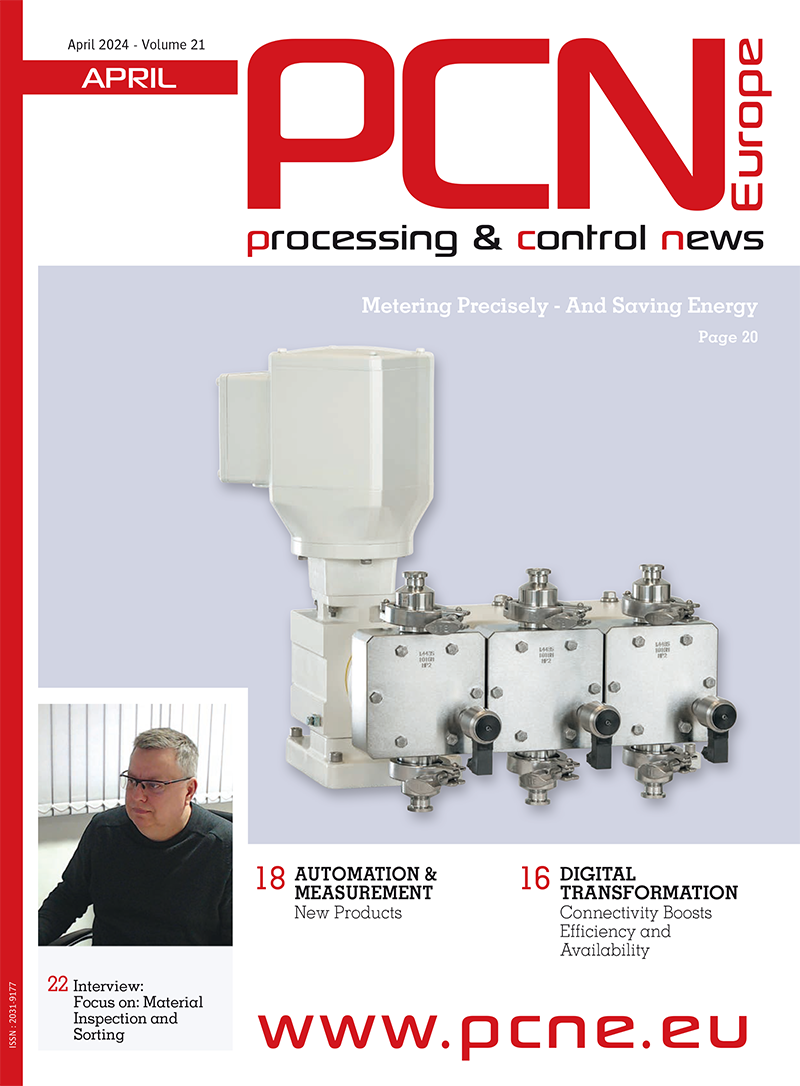PCN Europe: The process industry has seen a huge upswing in the last years. How has this impacted on ACHEMA and what’s new compared to the last edition?
Dr. Scheuring: ACHEMA is much less prone to the cyclical up- and downswings every industry experiences. However, this year we notice the tailwind from our industries. Exhibitor demand has been large, even overwhelming in exhibition groups such as pharma, logistics and storage technologies where we rent an additional hall. In the automation sector, it’s similar. But more “traditional” sectors such as mechanical engineering also see an increase.
ACHEMA rests on the well-established pillars in the form of our eleven exhibition groups and the interaction between exhibition and congress. The details of the building change every time – we have three very well-received focus topics, we have expanded the PRAXISforums as special application-focused session close to the respective exhibition halls, and we are always adjusting some bolts and screws that you might not even notice as a participant, but which improve the overall experience.
PCN Europe: Biotech for Chemistry, Chemical and Pharmaceutical Logistics and Flexible Production are this year edition’s focal topics. Can you tell us how these three features have changed the process industry?
Dr. Scheuring: Biotech for Chemistry has been on the agenda for quite a while now. For the longest time “biotechnology or chemistry” was a question of principle when it came to producing active pharmaceutical ingredients, polymers or fuel. In today’s bioeconomy more and more processes now use the best of both worlds.
The focal topic “chemical and pharmaceutical logistics” highlights the whole supply chain from intralogistics to intermodal transport. How flow of material is controlled within the plant is the responsibility of the company, but inbound and outbound transport is often taken care of by service providers. These are becoming increasingly system partners with higher-level solutions – the digitization of the logistics chain opens new doors in supply chain management and distribution.
If you want to compete in the dynamic world markets, flexibility is key – in every aspect. Smaller batches, more specialized products, faster cycles – in the end, the quality needs to be right. The digital integration of the value chain makes it possible. The focal topic “flexible production” highlights the current status of industry 4.0 and shows where the market is headed. This includes concepts for smaller and more specialized product batches, faster cycles, modular concepts and more.
PCN Europe: What are the expected figures at this year’s show and what’s the growth rate experienced in this years and forecast?
Dr. Scheuring: We are always very careful with predictions – there are too many factors that have an impact on event attendance. However, for this year’s edition, our expectations are optimistic. We expect slightly increased numbers in the exhibition and hope that this wears off on visitor numbers, too.
PCN Europe: Flexible Production is an important subject for the most competitive companies. It means being able to adapt the production to a more dynamic and fast-changing world, while fulfilling the transition to Industry 4.0. How does Modular Production help this transition process?
Dr. Scheuring: Modular production is key to more process flexibility. In Hall 9.2 on the showcase stand “The Age of Modular Production” you can experience how suppliers, researchers and users are cooperating to develop new concepts of modularization. Imagine a plant where by rearranging the components in their respective modules you can produce one thing today and another tomorrow? Where you can switch between different resources depending on their availability? Or that you can ship in a container to any place in the world and start right away to produce a vaccine to fight a local epidemic? Some of these visions have already come true – ACHEMA is the perfect place to make the others happen.
PCN Europe: ACHEMA vs ACHEMASIA or ACHEMA together with ACHEMASIA? Asia, and especially China, is a growing market which is far more competitive than Europe. In the light of this evidence, do you think that ACHEMASIA puts itself more in competition or in continuity with ACHEMA?
Dr. Scheuring: ACHEMA has seen a large increase in participation from Asia, especially China. Still, ACHEMA and AchemAsia are two distinctly different events and each exists in its own right. ACHEMA is the global forum of the process industries; Chinese exhibitors account for one of the largest groups, but there is equally high attendance from many European exhibitors, e.g. from Italy or France, and Germany, of course. AchemAsia started in 1989 as a kind of “ambassador”, bringing the worldwide process industry to China. It has evolved into a forum where participants from different regions meet at eye level and learn from each other. We stay abreast of these changes and will relaunch AchemAsia next year, moving to Shanghai and focusing on what really moves Asia today: AchemAsia - International Expo and Innovation Forum for Sustainable Chemical Production.
PCN Europe: Resource, Digitization and Energy Climate are among the hottest discussion topics highlighted at ACHEMA. How would you start the conversation for each of these thematic points?
Dr. Scheuring: We need to protect our resources – for material use as well as for energy generation – and our environment, and the process industry is already doing a lot in this way. To find out more on this topic, it would be worth to visit ACHEMA on Monday where we have bundled a lot of the congress sessions along with a panel discussion in the theme day “Resources”. For visitors more interested in energy and climate change, Wednesday is the day to mark on the calendar; among others, we will have a plenary tandem lecture on sector integration. While to learn how digitization affects the chemical industry, there will be the chance to hear about technological opportunities but also about new business models in the theme day “Digitization” on Tuesday.
Sara Ibrahim


